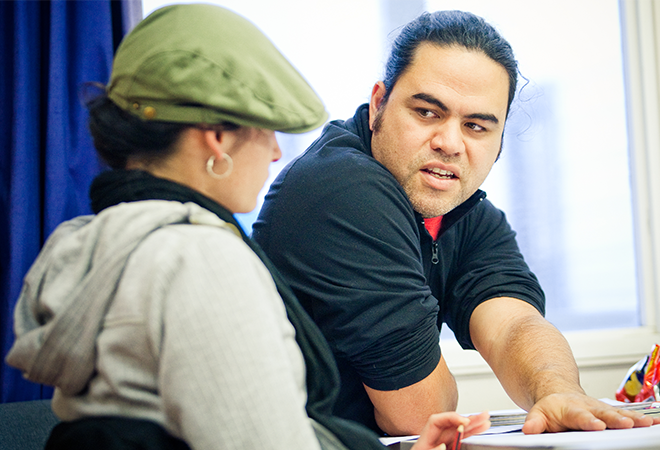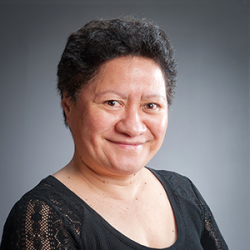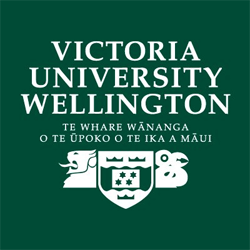
A Tiriti-led approach to psychology | The effectiveness of Te Kete o Hinengaro in supporting whānau, community and learning environments
Status
Key research questions
How do Te Kete o Hinengaro - a Psychological Kit integrating mātauranga Māori, work-based learning, and cognitive psychology - influence ākonga (learners) in terms of academic performance and career readiness, compared to conventional resources?
What are the key challenges and enablers experienced by lecturers, tutors and ākonga when integrating Te Kete o Hinengaro into the curriculum?
What specific tools within Te Kete o Hinengaro are most used by ākonga?
The study will build on existing psychological research while providing crucial contextual insights for applied approaches in psychological contexts.
Aims:
- Enhance psychology lectures/laboratories by refining Te Kete o Hinengaro to directly align with te Tiriti o Waitangi, mātauranga Māori, AI, and neurodiversity and Western psychology.
- Advocate for meaningful changes in the psychology curriculum, promoting Indigenous psychology.
Methodology:
The project applies a Kaupapa Māori and framework to ensure cultural relevance and community benefits for ākonga, whānau, and educators.
Case studies, themes and surveys will be used to gauge the utility of the kete.
Team

Dr Tia Neha
Lead Researcher
Te Herenga Waka | Victoria University of Wellington
Dr Ethel Renata
Te Herenga Waka | Victoria University of Wellington
Stacey Morgan
Te Herenga Waka | Victoria University of WellingtonStatus
Funding
$104,550.00 (excl GST)
How will answering these questions help?
Knowledge Sharing: The insights gained from evaluating the effectiveness and impact of the te Kete o Hinengaro will offer valuable information on how culturally responsive materials can be integrated into teaching delivery.
Reciprocal Learning: By promoting an environment where teachers and ākonga learn from each other, the practice of ako (the two-way reciprocal learning process) is strengthened. Educators learn about ākonga cultures and perspectives, which in turn informs their teaching methods and materials.
Professional Development:
Educator Skills: Through the implementation and ongoing assessment of te Kete o Hinengaro, educators can gain new skills in culturally responsive teaching, use of educational technology, and handling diverse classroom settings.
Workshops and Training: The project can lead to the development of specialised training sessions that help educators understand and implement the Tiriti o Waitangi principles behind te Kete o Hinengaro, enhancing their ability to support ākonga.
Collaborative Practices:
Community Engagement: Genuinely engaging with the tertiary and whānau communities engenders the development and evaluation of te Kete o Hinengaro which in turn encourages a collaborative approach to tertiary education, where whānau knowledge and educational practice inform each other.
Networking Opportunities: Sharing findings and methodologies with other organisations (wānanga and universities) via publications and wānanga promotes collaborative learning and the dissemination of best practices across educational institutions.
Benefits to ākonga
Enhanced Engagement: By using educational tools that reflect their cultural backgrounds, ākonga feel more connected and engaged with the learning material, which can lead to improved educational outcomes.
Identity and Confidence: Ākonga benefit from seeing their cultures and languages represented in their learning materials, which can boost their confidence and sense of identity.
Academic Performance:
Learning Outcomes: The targeted support provided by culturally tailored educational resources like te Kete o Hinengaro can help improve cultural knowledge, and overall academic performance custom-made for the integrated work/learning approach.
Skills Development: The kete are designed to not only provide knowledge but also develop critical thinking, problem-solving, and emotional intelligence skills in Psychology.
Inclusivity:
Meeting Diverse Needs: The initiative’s focus on inclusivity—accounting for the the needs of Māori, Pacific, international, neurodiverse, non-Māori and ākonga with disabilities —ensures that the educational environment becomes more accommodating and supportive for all learners.
Safe Learning Environment: Culturally sensitive materials and practices help create a safe learning environment where ākonga feel respected and valued, which is crucial for effective learning.
Long-Term Educational Pathways:
Career and Further Education: By improving educational outcomes and providing resources that are aligned with ākonga' cultural contexts and work endeavours, te Kete o Hinengaro helps prepare ākonga for future educational opportunities and careers.
Intended outcomes
Anticipated outcomes of the project are:
- A pilot study on how the contents of Te Kete o Hinengaro will be implemented in the new 2025 Psychology (PSYC213 -Te Kura Mātai Hinengaro and Western Science) and the established PSYC463 – Indigenous Psychology courses. This will be the first investigation of its kind that integrates te Tiriti o Waitangi principles, mātauranga Māori, industrial and organisational and cognitive psychology for ākonga.
- Develop a data sovereignty-based system. Propose and test hypotheses within that database to determine how mātauranga, industrial and organisational and cognitive psychology have evolved within the School of Psychology, Victoria University of Wellington and if accessible to other evidence across other Psychology Schools in New Zealand.
- A published report and presentations based on the project findings.
- Use the findings for further research in this area.